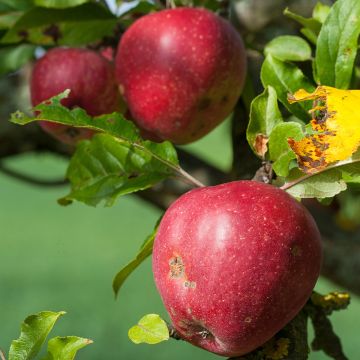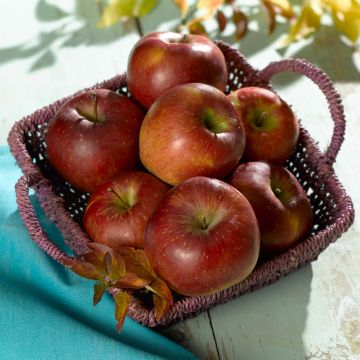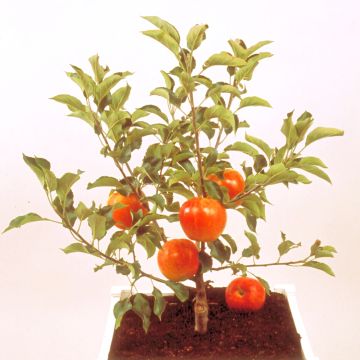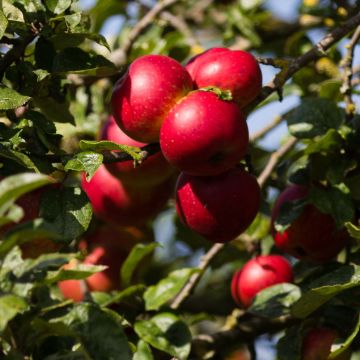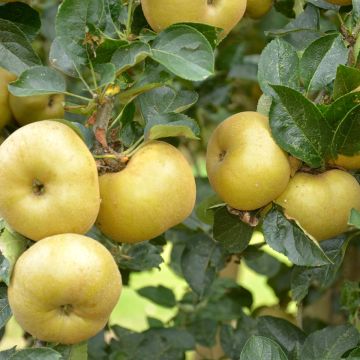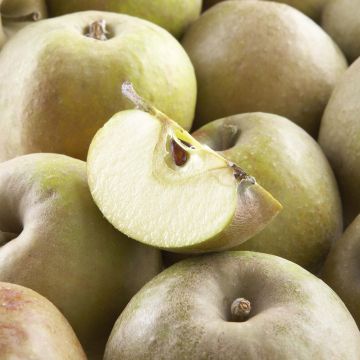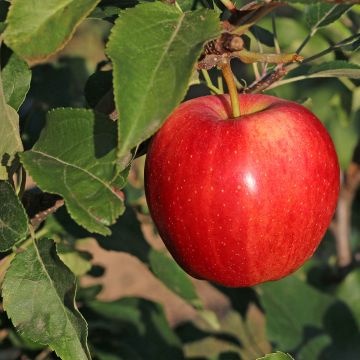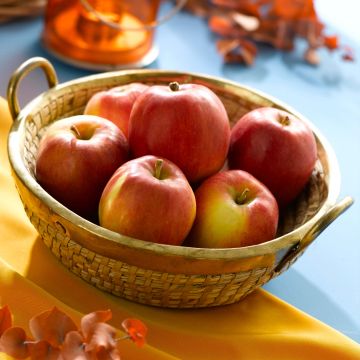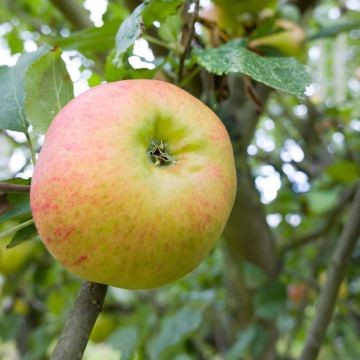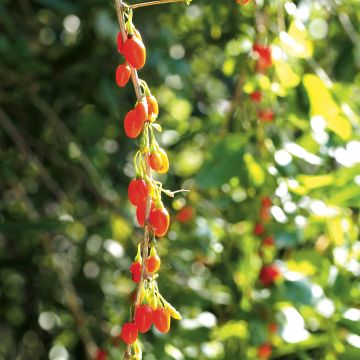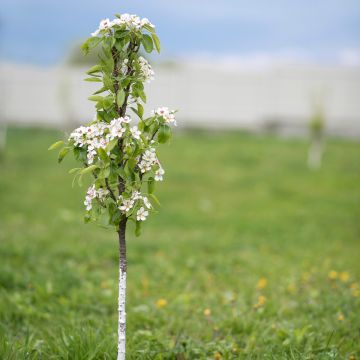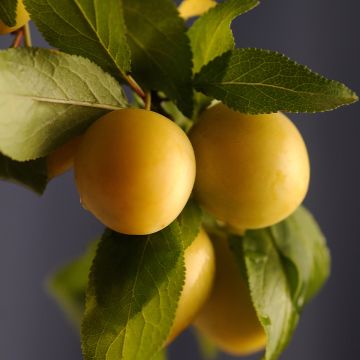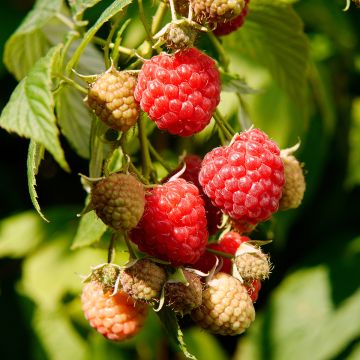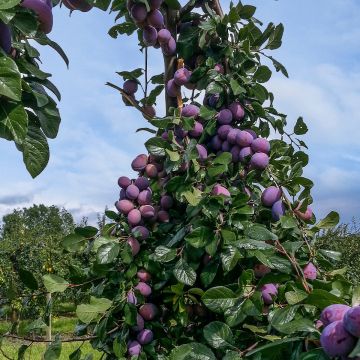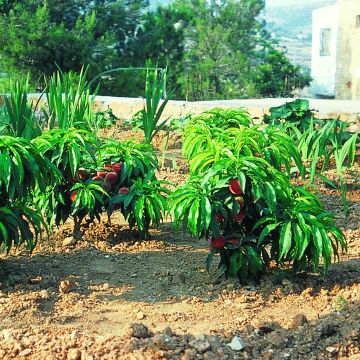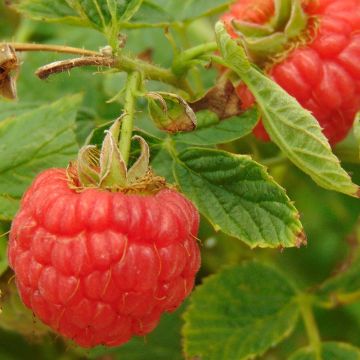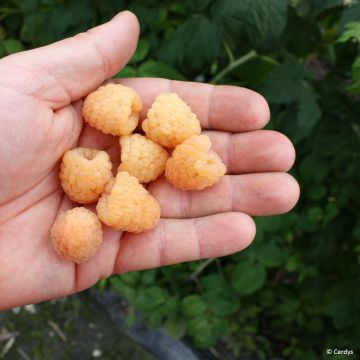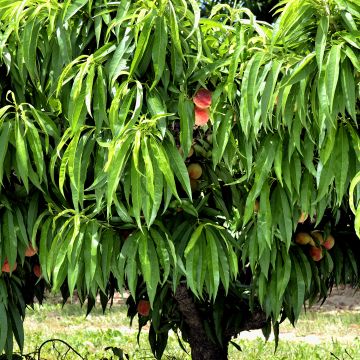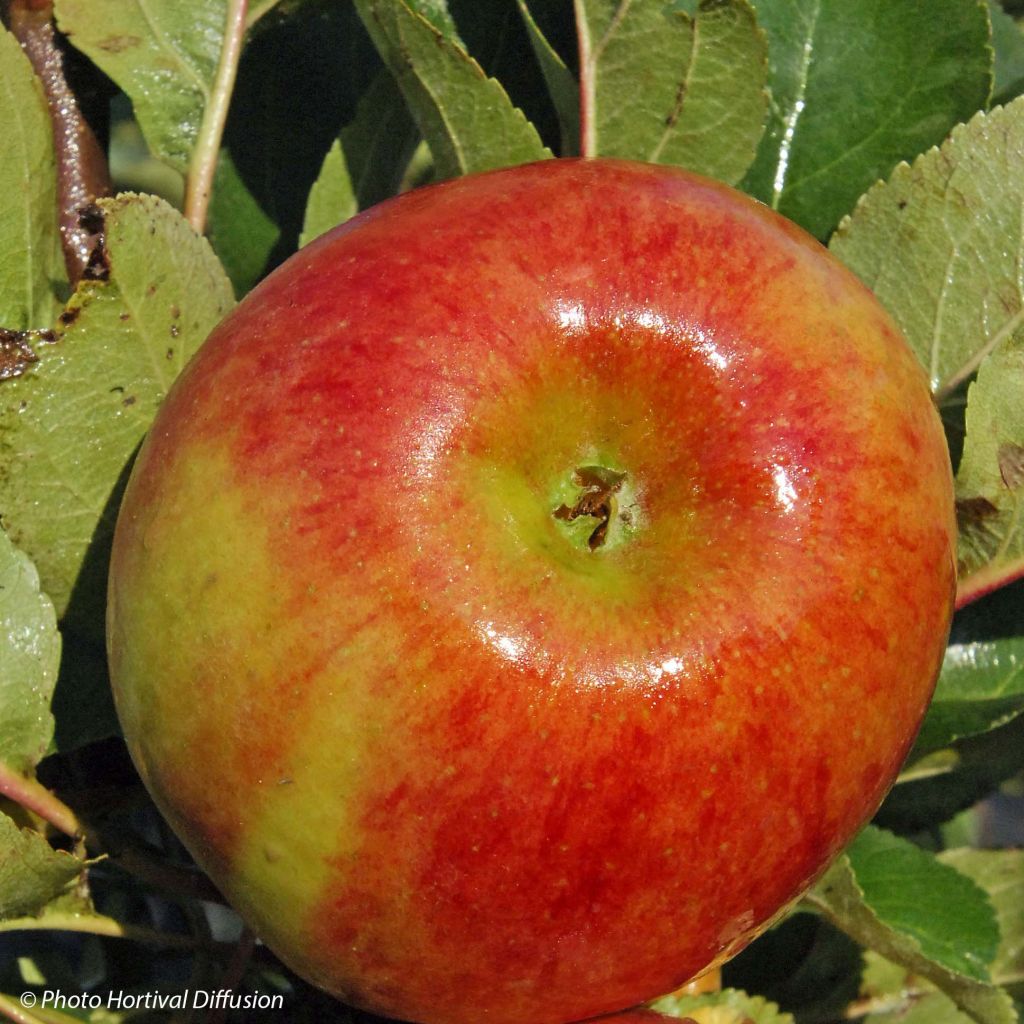

Pommier colonnaire Rhapsodie
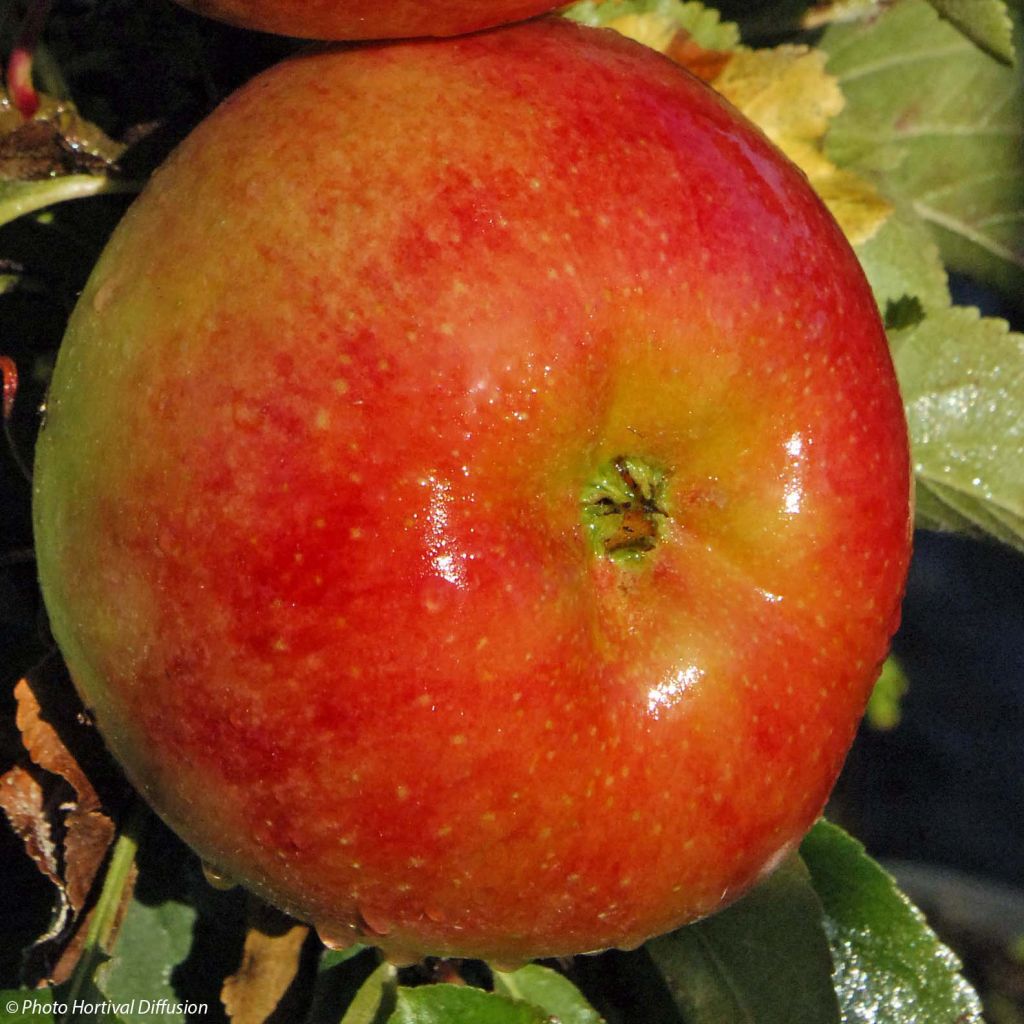

Pommier colonnaire Rhapsodie
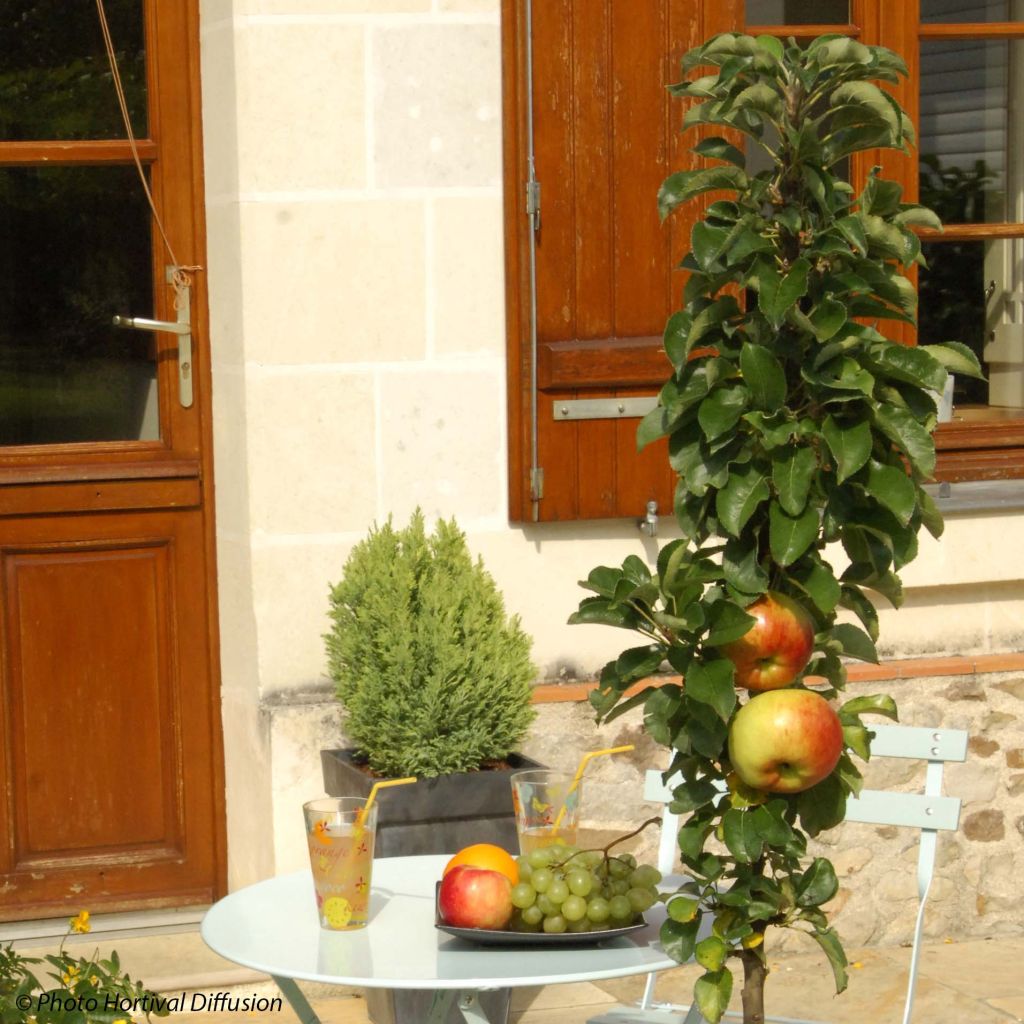

Pommier colonnaire Rhapsodie
Columnar Apple Tree Rhapsodie - Malus domestica
Malus domestica Rhapsodie®cov
Apple, Orchard apple, Table apple, Cultivated apple
Le pommier a bien passé l'hiver, la blessure due au transport a été soignée(vous ai contacté par cela), il s'est couvert de fleurs durant ce printemps, malheureusement aucun fruit n'est apparu malgré la présence de bourrache en fleur. Peut être l année prochaine.
Martine, 28/05/2020
This item cannot be shipped to the selected country
Delivery charge from €5.90
More information
Delivery charge from €5.90
More information
Schedule delivery date,
and select date in basket
This plant carries a 6 months recovery warranty
More information
We guarantee the quality of our plants for a full growing cycle, and will replace at our expense any plant that fails to recover under normal climatic and planting conditions.
From €5.90 for pickup delivery and €6.90 for home delivery
Express home delivery from €8.90.

Description
The 'Rhapsodie'® Columnar Apple Tree is a space-saving and decorative variety. This apple tree is suitable for orchards, small gardens, or even terraces as it thrives in containers. 'Rhapsodie' fruits are yellow and orange in colour, and the juicy and crunchy flesh is in a good balance between acidity and sweetness. Harvesting takes place from the end of September.
The apple tree is a native tree in Europe, particularly in France where its presence has been documented since ancient times. Columnar apple trees are selected for their vertical growth; they are reduced to their trunk alone, without any scaffold branches. This unique silhouette makes them perfect for small spaces, whether in the ground or in containers or large pots. They are also highly decorative and create a distinctive ambiance with their architectural appearance. Additionally, in spring, they produce long bouquets of flowers. Another advantage of these remarkable fruit trees is that they do not require pruning. The 'Rhapsodie' Columnar Apple Tree is an improvement on earlier varieties, as it is resistant to the most common forms of apple scab.
Abundant flowering occurs between March and April, and it is not affected by spring frosts. The tree itself is completely hardy. Being self-sterile like many other apple trees, 'Rhapsodie'® requires the presence of another variety nearby for pollination. If you lack space and your neighbours do not have an apple tree, choose another columnar cultivar like 'Rondo'® or Ballerina® 'Maypole', for example, but a regular apple tree such as 'Reine des Reinettes' will be perfect. Harvesting takes place at the very end of September and can extend into October. The fruits do not store well, but they can be kept until December if you find a suitable place for them: a cool, airy room where you can store them on shelves or in crates.
'Rhapsodie' apples are yellow and turn reddish-orange as they ripen. They are a good eating apple, being crisp and juicy. The flavour is both slightly acidic and adequately sweet. Versatile, it can also be cooked for compotes and pies.
Columnar Apple Tree Rhapsodie - Malus domestica in pictures
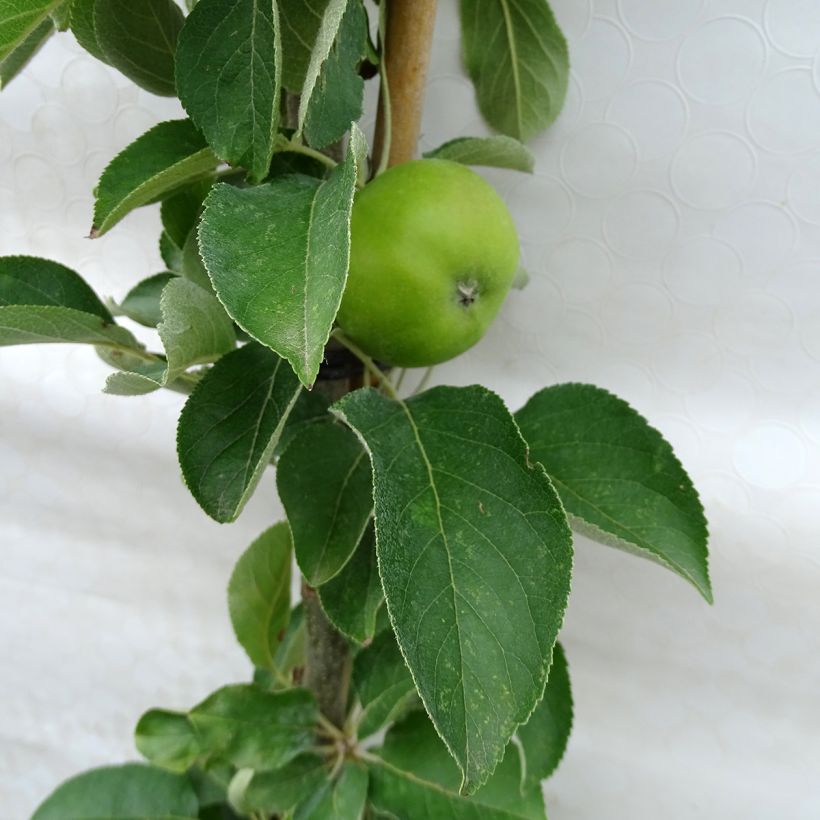

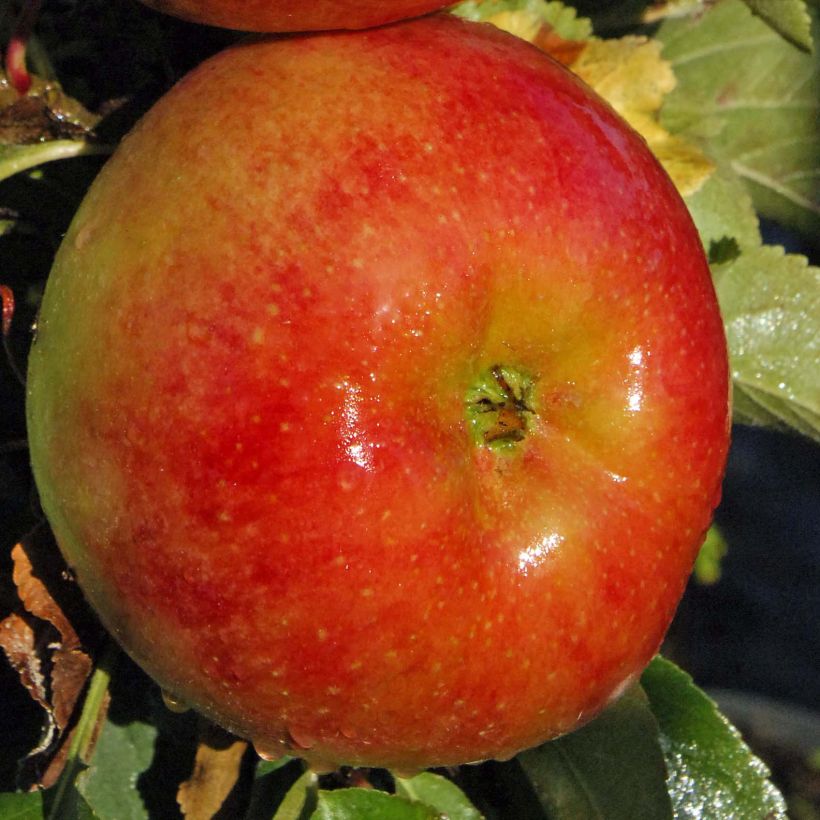

Plant habit
Fruit
Flowering
Foliage
Botanical data
Malus
domestica
Rhapsodie®cov
Rosaceae
Apple, Orchard apple, Table apple, Cultivated apple
Cultivar or hybrid
Other Apple trees
Planting and care
Your Columnar Apple Tree 'Rhapsodie'® can be planted in the ground in a very classic way. Choose a sunny location, the soil can be slightly chalky or acidic but not excessively so. Dig a planting hole and simultaneously add organic matter (potting soil, compost...) and a basal fertilizer such as crushed horn. Do not bury the graft collar. Stake and water abundantly the first time, even in winter, even if it rains. Fruit trees are ideally planted between October and March, outside the freezing period. You can add a small handful of wood ash during the winter, rich in potash, to improve fruiting.
The advantage of columnar fruit trees is that they can be planted in containers for outdoor use. Choose a container of at least 60L. Make sure the container is perforated and create good drainage by filling the bottom with a thick layer of clay pellets or gravel. In pots, your trees will naturally require more regular watering. In winter, move your fruit trees to a sheltered place away from the wind and stop watering during freezing periods. Every two years, at least, remove the top layer of soil and replace it with fresh soil, and fertilize before flowering using a special fertilizer that is not too rich in nitrogen.
Monitor for possible aphid attacks during the season. Harvesting takes place in September. Only keep the harvested fruits. Store the apples with the stem facing downwards, on shelves or in crates. Choose a preferably completely dark, dry, cool place, but frost-free.
Planting period
Intended location
Care
Fruit trees for small gardens
Haven't found what you were looking for?
Hardiness is the lowest winter temperature a plant can endure without suffering serious damage or even dying. However, hardiness is affected by location (a sheltered area, such as a patio), protection (winter cover) and soil type (hardiness is improved by well-drained soil).

Photo Sharing Terms & Conditions
In order to encourage gardeners to interact and share their experiences, Promesse de fleurs offers various media enabling content to be uploaded onto its Site - in particular via the ‘Photo sharing’ module.
The User agrees to refrain from:
- Posting any content that is illegal, prejudicial, insulting, racist, inciteful to hatred, revisionist, contrary to public decency, that infringes on privacy or on the privacy rights of third parties, in particular the publicity rights of persons and goods, intellectual property rights, or the right to privacy.
- Submitting content on behalf of a third party;
- Impersonate the identity of a third party and/or publish any personal information about a third party;
In general, the User undertakes to refrain from any unethical behaviour.
All Content (in particular text, comments, files, images, photos, videos, creative works, etc.), which may be subject to property or intellectual property rights, image or other private rights, shall remain the property of the User, subject to the limited rights granted by the terms of the licence granted by Promesse de fleurs as stated below. Users are at liberty to publish or not to publish such Content on the Site, notably via the ‘Photo Sharing’ facility, and accept that this Content shall be made public and freely accessible, notably on the Internet.
Users further acknowledge, undertake to have ,and guarantee that they hold all necessary rights and permissions to publish such material on the Site, in particular with regard to the legislation in force pertaining to any privacy, property, intellectual property, image, or contractual rights, or rights of any other nature. By publishing such Content on the Site, Users acknowledge accepting full liability as publishers of the Content within the meaning of the law, and grant Promesse de fleurs, free of charge, an inclusive, worldwide licence for the said Content for the entire duration of its publication, including all reproduction, representation, up/downloading, displaying, performing, transmission, and storage rights.
Users also grant permission for their name to be linked to the Content and accept that this link may not always be made available.
By engaging in posting material, Users consent to their Content becoming automatically accessible on the Internet, in particular on other sites and/or blogs and/or web pages of the Promesse de fleurs site, including in particular social pages and the Promesse de fleurs catalogue.
Users may secure the removal of entrusted content free of charge by issuing a simple request via our contact form.

































